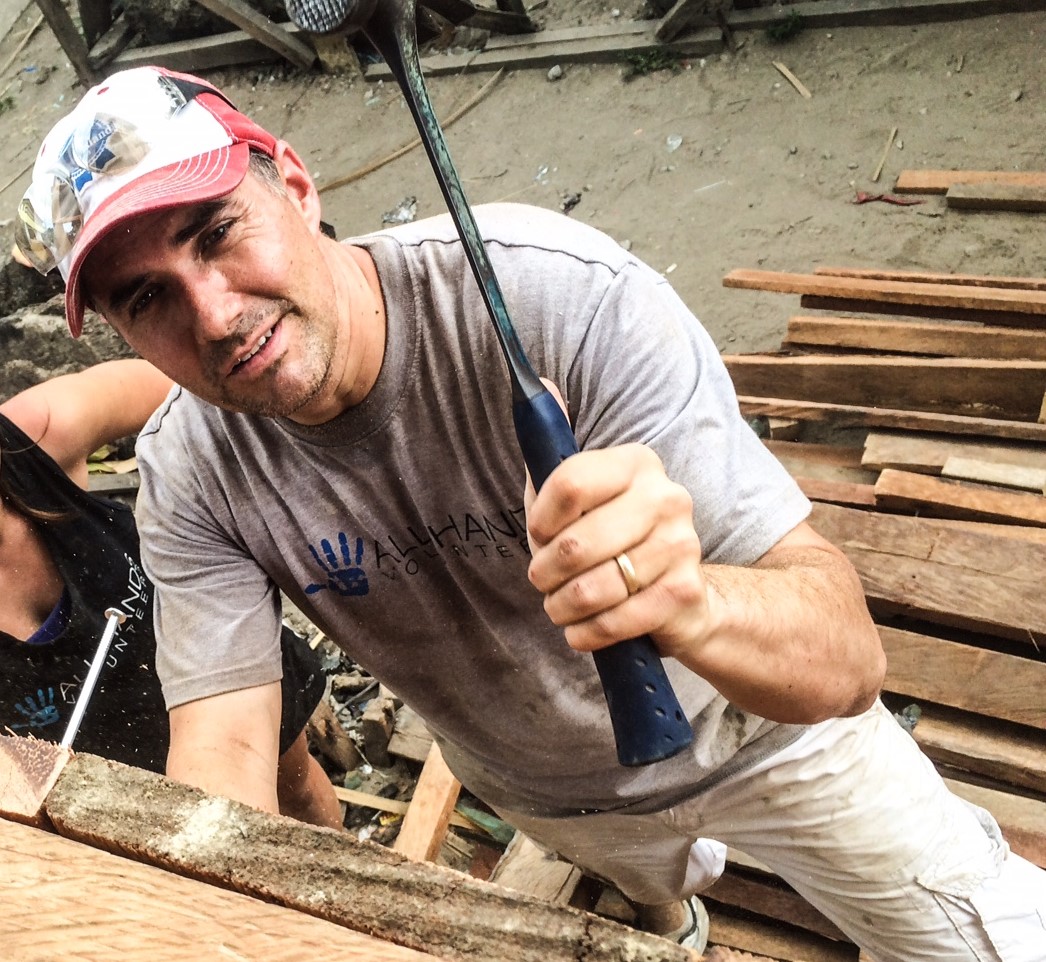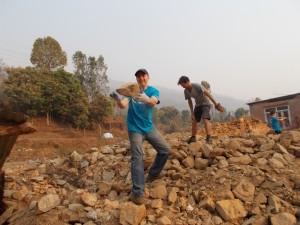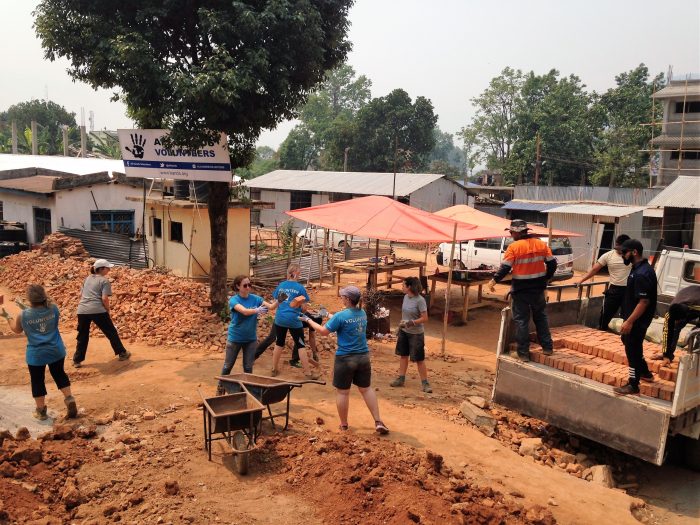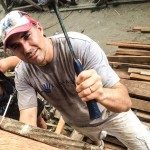Rebuilding Hope in Nepal
CDP Grantee All Hands Volunteers Rebuilding Schools in Nuwakot District Special update from All Hands Volunteers Executive Director and CEO Erik Dyson. As I wrapped up my third trip to Nepal since last year’s terrible earthquakes devastated the country, I experienced a broad mixture of emotions: from sadness, frustration, and criticism to hope, pride, and […]

CDP Grantee All Hands Volunteers Rebuilding Schools in Nuwakot District
Special update from All Hands Volunteers Executive Director and CEO Erik Dyson.
As I wrapped up my third trip to Nepal since last year’s terrible earthquakes devastated the country, I experienced a broad mixture of emotions: from sadness, frustration, and criticism to hope, pride, and admiration.
Nepal is a country that has magnificent natural surroundings and so many come from around the world to experience its raw beauty. Visitors trek to mountainside villages that have no road access and require that all supplies be carried and distributed on the backs of those who live there. For so many Nepalis, this means that daily life is consumed in just trying to meet basic needs. Even before the earthquakes, Nepal ranked near the bottom of the UN Human Development Index, so the idea of rebuilding homes and schools in this context is overwhelming at best.
While every natural disaster stresses societies, no matter how developed, the twin earthquakes unleashed a series of events that have been truly crippling. An obstructive government forced the passage of a constitution that provoked a fuel crisis and blockade with neighboring India. This, combined with general government inaction, has landed the average Nepali caught in the middle with no fuel for heating, cooking, or transportation and a painfully slow trickle of government funding to help earthquake victims with the already daunting recovery process.
The fallout from this reality was evident in every conversation I had on this trip. I heard countless stories of queuing up in fuel lines at 5 am and waiting 12 hours only to receive a small portion of fuel—or none at all. I heard stories of loss of children, mothers, and grandmothers and grieving, while at the same time, trying to feed a family in the face of tripled food prices. I saw multiple families crowded into the small two room homes of kind neighbors because their home had been reduced to a pile of rubble. To me, this came together to reconfirm my fierce commitment to the work that All Hands Volunteers is doing in Nepal.
Notwithstanding these incredible obstacles, I also saw an irrepressible tenacity and spirit of hope, optimism, and resilience among the Nepali people that was truly humbling and encouraging. I visited a village near the Tibetan border that was completely destroyed. When we arrived to assess whether we could help them rebuild their school, which now is just a couple of rooms made of tin and tarp, we were greeted by all the children and an energetic school committee.
We then had a vibrant and exciting two hour meeting where they passionately explained their five-year strategy, not only to rebuild but also to continue to grow and improve the quality and access to education in their village. This was a community with a vision for the future, intent on overcoming these challenges to make a better life for themselves and their children, but they need help accomplishing that vision. All Hands Volunteers will work together with these leaders, providing labor and experience to boost and support the very efforts they are leading.
I also had the privilege to spend a few days at our project in the Nuwakot district where we are rebuilding five school campuses, totaling 80 classrooms, thanks to partners like the Center for Disaster Philanthropy, Happy Hearts Fund, Room to Read, and so many others. We currently have over 80 volunteers, from 25+ countries, who have taken time out of their lives to help these communities recover.

Given the location of the schools, volunteers work remotely, leaving our base every Sunday, spending the week camping on impromptu sites with no running water or reliable electricity and then returning Friday evenings. They work 10+ hour days on the construction of the schools and also train community members on better construction methods given the threat of earthquakes.
I worked a day with a team that had two Spanish women (one was an architect), a Canadian woman who has volunteered on many projects with us, a young French woman, an Italian writer, and our American team leader who had never taken an airplane before he came out to volunteer in Nepal. The Italian gentleman, David, has dedicated the last seven years of his life volunteering on projects around the world and has structured his life so he can live on less than 2,000 euros a year.
The tireless dedication of these and of all of our volunteers was inspiring not only to me, but also to the Nepali people who can scarcely believe that anyone would fly to their small community just to help them. As a result, they are constantly looking for new ways to express their appreciation by working side by side with us and by presenting us with plates piled high with traditional Nepali foods.Through these shared experiences, bonds of love and mutual respect are formed and we find ourselves transformed.
All Hands Volunteers is committed to “Rebuilding Hope” amongst the survivors of natural disasters and the volunteers that roll up their sleeves to help. This was so evident on my latest trip to Nepal as I again saw evidence that working on community level solutions in the context of national problems is not only effective, but very much needed. While the overall situation can seem overwhelming, maintaining this focus allows us, in our small way, to make the world just a little bit better place—for all of us.
More like this

Building Hope One School at a Time

